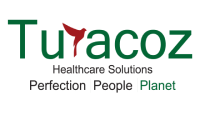What is Triclosan?
Triclosan is commonly used as a disinfectant or an antiseptic to reduce and control the bacterial contamination. It is an organic compound with a slight phenolic smell. It is a very well-known biocide for over 40 years. Although its main application is in cosmetics (maximum allowed concentration 0.3%), triclosan is also ubiquitously usedinanti-bacterial soaps and toothpastes (even upto the concentration0.46%). About 75% of liquid anti-bacterial soaps and 30% of bars use triclosan as an active ingredient. The drug, which was originally used strictly in hospitals and healthcare centres, was adopted by manufacturers of soaps and other home products in course of time.
Triclosan Causes Memory Loss
Triclosan is believed to cause endocrine disruption; even low levels of triclosan may disrupt thyroid function. Poor thyroid function, in turn, may lead to depression, weight gain, fatigue, and memory loss. Also, triclosan degrades to dioxins in the body, which can destroy brain cells. As a result, neurological disorders and emotional distress might happen.
Triclosan attaches itself to the receptor molecules on the surface of brain cells and leads to increased calcium levels inside the cells. As a result, cells become over-excited, leading to cellular death. Over-excitation of brain cells may lead to developmental delays and autism in children.
The United States Food and Drug Administration (US FDA) research, along with countless independent studies, have shown that triclosan does not provide any health benefits as compared to the old-fashioned soaps. Using triclosan-containing anti-bacterial soaps does not give any added advantage over triclosan-free normal soaps in providing antimicrobial protection.
The U.S. FDA has issued a proposed rule requesting additional scientific data to support the safety and effectiveness of such active ingredients used in topical antiseptic rubs (including hand sanitizers) marketed over-the-counter (OTC).
How to Reduce Exposure to Triclosan
Anti-bacterial soaps and hand-sanitizers mostly contain triclosan, which is harmful for children. However, you must ensure that children clean theirhands before eating. A few tips can help you to avoid exposure to triclosan:
- Choose a safer soap or liquid hand soaps which do not contain triclosan.
- Encourage washing hands with soap and water, the best way to reduce the number of microbes in most of the situations.
- If soap and water are not available, use an alcohol-based hand sanitizer that contains at least 60% alcohol.
Exposure to triclosan can disrupt normal brain function and cause memory loss in children. We, at Turacoz Healthcare Solutions, consider it our corporate social responsibility to raise awareness for the minimal use of triclosan-containing antibacterial hand sanitizers, especially in children. Protect your children from the toxic effects of triclosan.






































